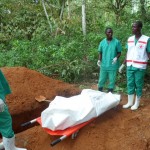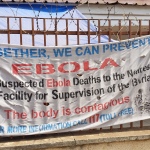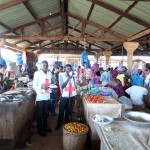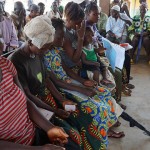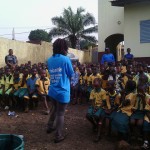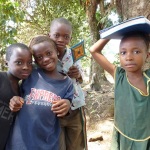This study aimed to support Oxfam’s Public Health Promotion (PHP) strategy through a rapid qualitative assessment of the remaining social barriers to compliance with Ebola prevention and treatment messages. At the time of the study, most Liberians had a high awareness of Ebola prevention and treatment information. However, new infections continued to occur in “hot spots” around the country. A preliminary assessment suggested that negative perceptions and fear of Ebola response efforts contributed to non-compliance and resistance in some areas. Research activities assessed the sources
Continue reading →
This report provides further output from an anthropological study of 25 villages affected by Ebola Virus Disease in eastern and central Sierra Leone, undertaken as part of the DFID-funded social mobilization initiative for Ebola prevention in Sierra Leone. Eight focus group transcripts for 3 villages in Kenema District are presented, covering local responses to health issues, and Ebola in particular. Supporting material from a matching questionnaire-based study of health behavior and perceived causes of Ebola is also provided. Of particular relevance are two summary tables
Continue reading →
In December 2013, the West African Ebola epidemic began in a village near Guéckédou, a trading town in rural Guinea, but the disease wasn’t identified until February. The Guineans promptly notified health officials in neighboring countries, and in Liberia a team of researchers immediately set out for Lofa County, just over the border from Guéckédou, where a number of mysterious deaths had recently occurred. The Liberians at first assumed the deaths were caused by Lassa fever, a far less deadly disease with symptoms similar to
Continue reading →
This comment piece identifies problematic assumptions behind communication and social mobilisation strategies which rely on using biomedicine to correct local logics and concerns and which cast them as misinformation. The effectiveness of using standardised advice for non-standardised situations is questioned.
This working paper reports on a study to identify the pace of Ebola-related social learning in urban and peri-urban areas around Monrovia, Liberia during August 2014, at the onset of the emergency phase of the epidemic. The research demonstrates how under conditions of accelerating health crises, social learning is rapid even in a context of heightened instability, suspicion, and misinformation. Misleading information in the form of local rumours and unhelpful government and international healthcare messages complicate this process and can produce anxiety. However, contrary to
Continue reading →
‘The Ebola epidemic ravaging parts of West Africa is the most severe acute public health emergency seen in modern times. Never before in recorded history has a biosafety level four pathogen infected so many people so quickly, over such a broad geographical area, for so long’ (Margaret Chan, 26th September 2014, WHO). This report focuses on the local beliefs and practices around illnesses and death, the transmission of disease and spirituality, which affect decision-making around health-seeking behaviour, caring for relatives and the nature of burials.
Continue reading →
